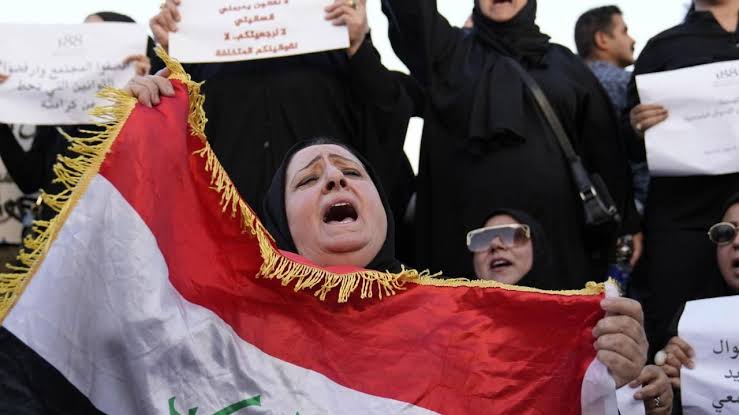More News
Global Outcry As New Iraqi Law Legalises Marriage Of 9-Year-Olds
By Benjamin Abioye

Iraq passes a law critics say legalizes marriage for girls as young as 9, sparking international outcry and concerns for women’s rights.
The Iraqi parliament has passed three controversial laws one of which changes the country’s personal status law in a way that critics argue effectively legalizes child marriage.
These changes give Islamic courts more power over family issues like marriage, divorce, and inheritance. Activists are concerned that this goes against Iraq’s 1959 Personal Status Law, which aimed to create a unified family law and protect women’s rights.
Those who support these changes, mainly conservative Shiite lawmakers, say they are bringing the law closer to Islamic principles and reducing Western influence on Iraqi culture.
Currently, Iraqi law sets 18 as the minimum age for marriage in most cases. However, the new changes allow religious leaders to interpret Islamic law, which some interpret as allowing girls to marry in their early teens, or even as young as 9 according to the Jaafari school of Islamic law.
The parliament also passed a general amnesty law that is thought to benefit Sunni detainees and potentially excuse people involved in corruption. They also passed a land law related to Kurdish territorial claims.
Human rights activist Intisar al-Mayali, who is part of the Iraqi Women’s League, stated that these changes to the civil status law “will leave disastrous effects on the rights of women and girls, through the marriage of girls at an early age, which violates their right to life as children, and will disrupt the protection mechanisms for divorce, custody and inheritance for women.”
The parliamentary session was chaotic, with accusations of procedural problems. One parliamentary official, who wished to remain anonymous, said that “Half of the lawmakers present in the session did not vote, which broke the legal quorum.” He also mentioned that some members protested loudly, and others went onto the parliamentary podium.
After the session, some lawmakers complained about how the voting was done, as all three controversial laws were voted on together. Raid al Maliki, an independent MP, said, “Regarding the civil status law, we are strongly supporting it and there were no issues with that,” but added that “it was combined with other laws to be voted on together…and this might lead to a legal appeal at the Federal Court.”
Parliament Speaker Mahmoud al-Mashhadani released a statement praising the laws, calling them “an important step in the process of enhancing justice and organizing the daily lives of citizens.”
Send Us A Press Statement Advertise With Us Contact Us
And For More Nigerian News Visit GWG.NG

